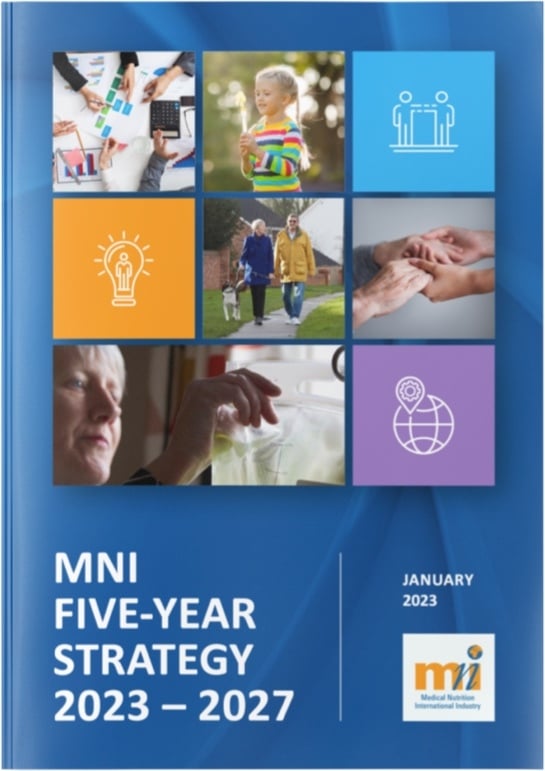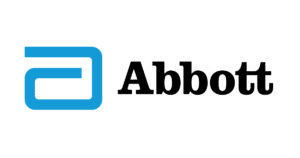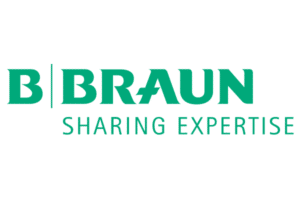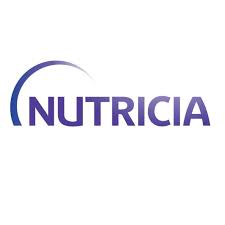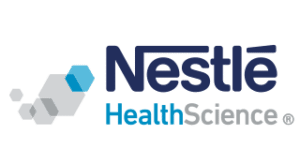Governance
MNI is an international not-for-profit trade association
MNI is registered as an international not-for-profit association (aisbl, in French) under Belgium law. MNI was originally created in 2005 and changed its statutes twice to adapt to the evolving Belgian legislation regarding not-for-profit organisations.
MNI operates on the basis of it Code of Conduct, Internal Rules, annual work plans, a 5-year strategy – in addition to its statutes.
MNI publishes its annual report, including year-end financial results and displays which organisations it supports financially, in a transparent manner.
The governing bodies are the General Assembly and the Executive Committee; the implementation of the programmes and projects is performed by staff based in Brussels.
MNI Five-Year Strategy 2023-2027
MNI is proud to present the MNI Strategy 2023-2027, stating our mission, vision and activities for the coming years. Our mission and vision remain unchanged, but the new Strategy equips MNI to better face current challenges. The Strategy draws conclusion from the current global health context and assesses opportunities for the field of medical nutrition. The Strategy reflects on MNI’s governance, partnerships, membership and internal functioning, reiterating our focus on exchanging best practices and expertise. This will notably be achieved by supporting projects & joint initiatives to reach disease-related malnutrition-friendly policymaking and health systems.
Code of conduct
MNI has adopted its first Code of Conduct in February 2022.
“MNI Rules of Conduct are one of the most important ways that we provide confidence to MNI members, stakeholders and instutional organisations, as well as the public that MNI and its members act competently and ethically” said Catherine Hartmann, MNI Executive Director. “It is important to openly display and share MNI’s ways of operating to members and stakeholders” she added.
The Code was adopted following a wide consultation of MNI members, who also involved their legal services so at to make the rules as robust as possible and adapted to MNI functioning. MNI benefited from the genuine support of its constituents, including working group members to develop what we believe will be a key element to enhance MNI’s transparency and commitment to ethical behaviours, within a profession that is sometimes finger pointed as being insufficiently communicating.
The Code reflects existing good practice in the food, nutrition, pharmaceutical and general care, and will be reviewed every year so as to assess its actual validity and adequacy to current practice. What does the Code of Conduct contain? It sets minimum standards for MNI and its Members, to help avoid potential conflicts of interest, healthcare fraud and abuse as well as corrupt or other illegal activities and support ethical and transparent interactions with the Healthcare Community. It covers, inter alia the following topics:
- Applicable laws, Codes and Principles of Healthcare Compliance
- MNI relations with Patients, Patient Organisations and Multi-Stakeholder Organisations
- MNI interactions with Healthcare Professionals and Healthcare Organisations Interactions
And more.
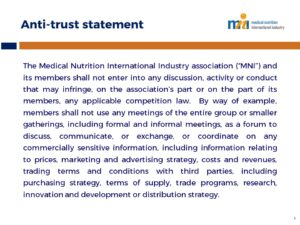
MNI staff reads the anti-trust statement at the start of all its internal meetings.
Our values
MNI’s core values are forged by its commitment to the highest ethical standards and they drive its priorities, commitments and organisational decisions. MNI’s reputation is the ultimate asset, and these core values guide its behaviour, judgments and how it accomplishes its mission:Integrity
MNI assures and maintains transparency in its relationships with its various constituencies.
Inclusiveness
MNI operates in a spirit of inclusiveness by providing opportunities and forums for its many stakeholders to be represented and heard across activities throughout the association.
Patient centricity
MNI’s ultimate aim is to serve the patients and their caregivers to help them maintain/improve their quality of life as much as possible. MNI seeks to understand, learn from, and meet the needs of individuals with malnutrition, as well as their families and caregivers.
Accountability
MNI keeps its commitments to its members and the wider health community as a trustworthy partner and makes measurable progress to achieve its mission.
MNI delivers on its mission of securing a safe and sustainable supply of high-quality nutritional care to patients suffering from DRM through three strategic priorities, with advocacy, legal and communications as cross-cutting activities. All work will be accompanied by a communication strategy.

